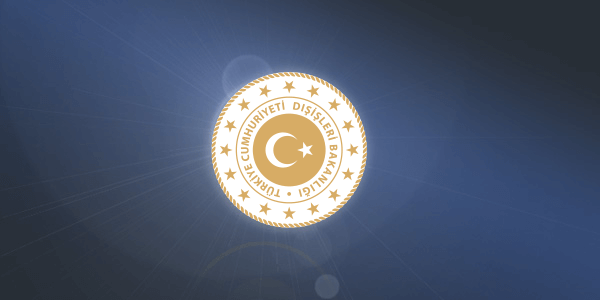- Dövizle Askerlik başvurularının yeniden başlamasına ilişkin duyuru Türkiye Cumhuriyeti Birleşmiş Milletler Daimi Temsilciliği 11.01.2024
- DÖVİZLE ASKERLİK DUYURUSU Türkiye Cumhuriyeti Birleşmiş Milletler Daimi Temsilciliği 22.12.2023
- E-APOSTİL UYGULAMASINA İLİŞKİN DUYURU Türkiye Cumhuriyeti Birleşmiş Milletler Daimi Temsilciliği 22.12.2023
- T.C. Şikago Başkonsolosluğu Türk Uyruklu Sözleşmeli Sekreter Sınavı Duyurusu Türkiye Cumhuriyeti Birleşmiş Milletler Daimi Temsilciliği 04.08.2023
- No: 38, 28 Şubat 2026, Bölgemizdeki Son Gelişmeler Hk. Türkiye Cumhuriyeti Dışişleri Bakanlığı 28.02.2026
- No: 39, 28 Şubat 2026, Bolivya’da Meydana Gelen Uçak Kazası Hk. Türkiye Cumhuriyeti Dışişleri Bakanlığı 28.02.2026
- No: 37, 26 Şubat 2026, Brezilya’da Meydana Gelen Doğal Afetler Hk. Türkiye Cumhuriyeti Dışişleri Bakanlığı 26.02.2026
- No: 36, 26 Şubat 2026, Hocalı Katliamı’nın 34. Yıl Dönümü Hk. Türkiye Cumhuriyeti Dışişleri Bakanlığı 26.02.2026

Ahmet Yıldız
Büyükelçi
Pazartesi - Cuma
09:00 - 18:00
+ 90 312 292 29 29






 TÜRKİYE'DE YATIRIM İMKANLARI
TÜRKİYE'DE YATIRIM İMKANLARI